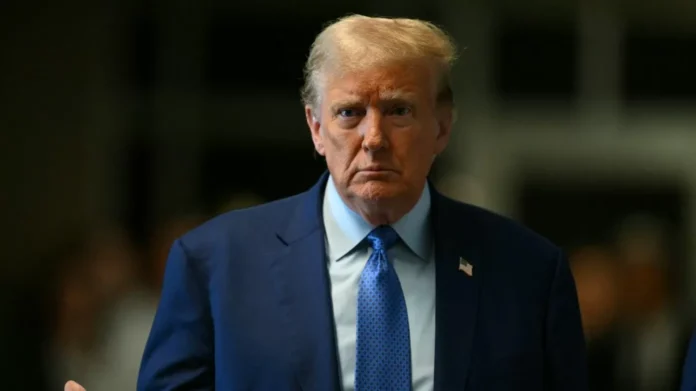Former President Trump made headlines yet again last month when it was revealed that he had asked oil industry executives for a whopping $1 billion in campaign cash. The meeting, which took place at his luxurious Mar-A-Lago resort, has sparked controversy and scrutiny from the media and the public alike.
According to someone with knowledge of the meeting, Trump met with top executives from the oil industry to discuss their support for his campaign. The request for $1 billion was first reported by both The Washington Post and The New York Times, citing sources who were present at the meeting.
The report from The Post stated that Trump had specifically asked for the hefty sum of money to secure his reelection bid. The Times also corroborated this, stating that the former president had approached the executives for their financial backing in the upcoming elections.
This revelation has caused quite a stir, with many questioning the ethics and legality of such a request from a sitting president. The fact that the meeting took place at his private resort only adds to the controversy surrounding the issue.
Critics have accused Trump of using his position as president to solicit funds for his campaign, something that goes against the principles of fair and democratic elections. Others have pointed out that this is not the first time Trump has been embroiled in such controversies, citing the numerous conflicts of interest during his presidency.
However, supporters of the former president have defended his actions, stating that it is a common practice for politicians to seek financial support from various industries for their campaigns. They argue that Trump is simply following the same path as his predecessors and that this request is not out of the ordinary.
Despite the divided opinions on the matter, one thing is clear – the meeting and the subsequent request for $1 billion has once again put the spotlight on the relationship between politics and big corporations.
The oil industry, in particular, has always had a significant influence on politics, with its deep pockets and powerful lobbyists. This meeting at Mar-A-Lago only serves to highlight this relationship and raises questions about the true extent of their influence on decision-making.
The timing of this meeting is also worth noting, as it took place just a few months before the 2020 presidential elections. With the oil industry being a major contributor to the US economy and a key player in global trade, it is no surprise that Trump saw it as a crucial sector to secure support from for his campaign.
As expected, both the oil industry and the former president have not commented on the matter. This silence has only fueled speculations and theories about the purpose and outcome of the meeting.
Some experts believe that this request for $1 billion could have been a tactic by Trump to intimidate and coerce the industry into supporting his campaign. Others view it as a desperate move by a struggling president who was facing a tough reelection battle.
Regardless of the intentions behind the meeting, the fact remains that it has raised serious concerns about the role of money in politics and the potential for corruption and conflicts of interest.
In the end, it is up to the American people to decide whether they are comfortable with the idea of a sitting president soliciting funds from powerful industries for their own political gain. The 2020 election results have shown that they were not, and it remains to be seen how this latest revelation will affect public opinion.
In conclusion, the news of former President Trump’s request for $1 billion from the oil industry during a meeting at Mar-A-Lago has certainly caused a stir and brought attention to the close ties between politics and corporations. Whether this meeting was a routine practice or a blatant misuse of power, it has once again ignited the debate on campaign financing and its potential consequences on democracy. As the 2020 election showed, the American people have the power to hold their leaders accountable and ensure that their voices are heard.

